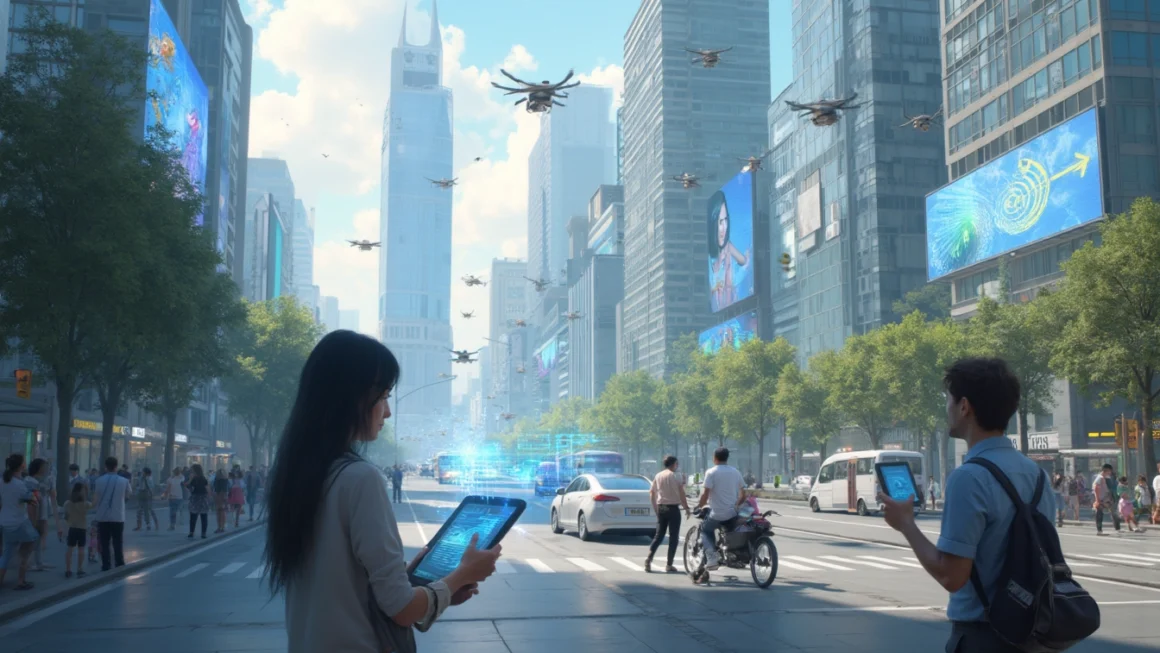In an era where artificial intelligence (AI) is rapidly transforming industries and reshaping our daily lives, the importance of trust, authenticity, and resilience cannot be overstated. As we navigate this AI-driven landscape, it’s crucial to understand how these fundamental human qualities can be preserved and enhanced.
The Rising Influence of AI
Table of Contents
Artificial intelligence has become an integral part of our world, influencing everything from healthcare and finance to entertainment and personal communication. While AI offers immense potential for innovation and efficiency, it also raises concerns about privacy, job displacement, and the erosion of human connection.
Building Trust in an AI-Driven World
Trust is the cornerstone of any healthy relationship, whether between individuals or between humans and technology. In an AI-driven world, building and maintaining trust requires:
Transparency
Organizations must be open about their use of AI, explaining how it works and what data it uses. This transparency helps users understand the technology’s capabilities and limitations.
Ethical AI Development
Developing AI systems with strong ethical guidelines ensures that the technology serves humanity’s best interests. This includes addressing bias, ensuring fairness, and prioritizing user privacy.
Human Oversight
While AI can process vast amounts of data and make rapid decisions, human oversight remains crucial. This ensures that AI systems align with human values and societal norms.
Preserving Authenticity in the Digital Age
As AI becomes more sophisticated in generating content and mimicking human interactions, preserving authenticity becomes increasingly important:
Emphasizing Human Creativity
While AI can assist in creative processes, human creativity and originality should be celebrated and encouraged. This helps maintain the unique human touch in art, literature, and other creative fields.
Fostering Genuine Connections
In a world of AI-powered chatbots and virtual assistants, nurturing genuine human connections becomes even more valuable. Encouraging face-to-face interactions and emotional intelligence can help counterbalance the digital saturation.
Promoting Digital Literacy
Educating people about AI and its capabilities helps them distinguish between authentic human-generated content and AI-generated material. This awareness is crucial in maintaining authenticity in digital interactions.
Building Resilience in an Ever-Changing Landscape
As AI continues to evolve and reshape industries, building resilience is key to adapting and thriving:
Continuous Learning
Embracing a mindset of lifelong learning helps individuals stay relevant in an AI-driven job market. This includes developing skills that complement AI, such as emotional intelligence, critical thinking, and creativity.
Adaptability
Being open to change and willing to adapt to new technologies and work processes is crucial. This flexibility allows individuals and organizations to leverage AI effectively while maintaining their core values.
Emotional Intelligence
As AI takes over more routine tasks, human emotional intelligence becomes increasingly valuable. Developing empathy, communication skills, and the ability to work well in teams are essential for resilience in an AI-driven world.
Leveraging AI for Positive Change
While navigating the challenges of an AI-driven world, it’s important to recognize and harness its potential for positive change:
Enhancing Decision-Making
AI can process vast amounts of data to provide insights that inform better decision-making across various sectors, from healthcare to environmental conservation.
Improving Efficiency
By automating routine tasks, AI frees up human resources to focus on more complex, creative, and emotionally intelligent work.
Solving Global Challenges
AI has the potential to address some of the world’s most pressing issues, such as climate change, disease prevention, and resource management.
The Path Forward: Balancing AI and Human Values
As we continue to integrate AI into our lives and work, finding the right balance between technological advancement and human values is crucial. This balance involves:
Ethical Frameworks
Developing and implementing robust ethical frameworks for AI development and deployment ensures that the technology aligns with human values and societal norms.
Human-Centered Design
Designing AI systems with human needs and experiences at the forefront helps create technology that enhances rather than replaces human capabilities.
Collaborative Approach
Encouraging collaboration between technologists, ethicists, policymakers, and the public helps create a more inclusive and responsible AI ecosystem.
In conclusion, building trust, authenticity, and resilience in an AI-driven world requires a multifaceted approach. By embracing transparency, fostering genuine human connections, and developing adaptable skills, we can harness the power of AI while preserving the essential qualities that make us human. As we navigate this new landscape, it’s crucial to remember that AI should be a tool that enhances human potential rather than a replacement for human ingenuity and empathy. Automation tools can play a significant role in this journey, helping us streamline processes and focus on what truly matters – our human connections and creative potential.




